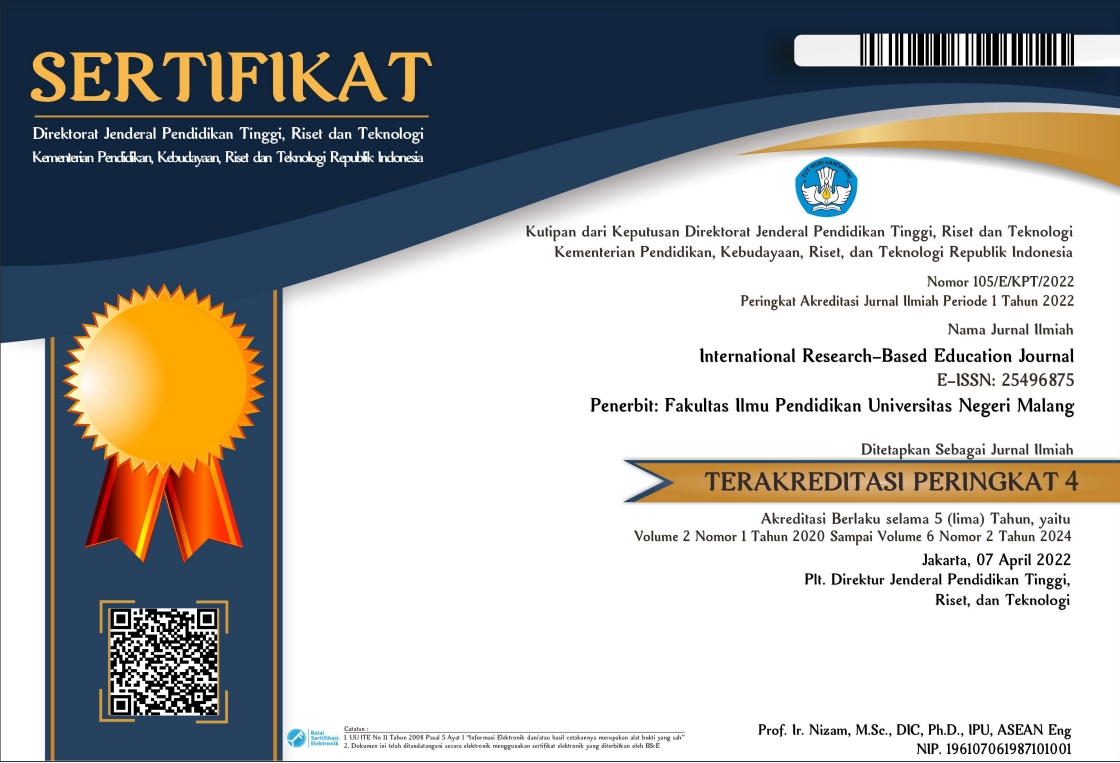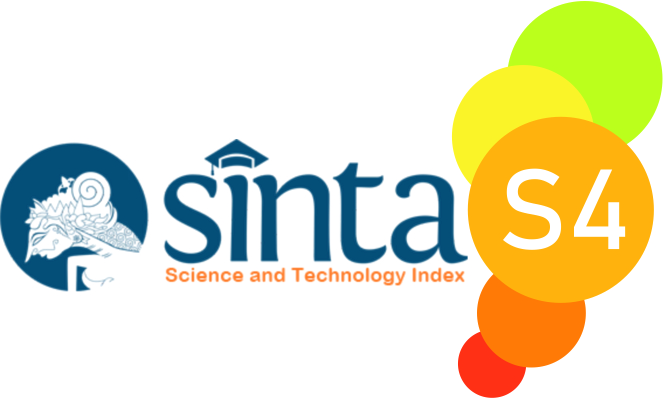The Valuation of Netiquette of Primary Teachers in Digital Era
Abstract
Internet etiquette is very necessary as teachers increasingly use the internet in teaching and communicate online. Netiquette is introduced in schools so that teachers would be more ethical in utilizing and dealing with the dynamics of interactions in the digital space wisely. The purposes of this study were to know the level of teachers’ understanding on netiquette in digital use and to describe factors that influence it. This study used phenomenological research method. The data were collected through observation sheets which distributed to 15 teachers from several schools on google form. The results indicated that the majority of teachers already understand that in cyberspace, humans interact and communicate with various cultural differences. Easy internet access allows everyone to connect and participate, without cultural or geographic boundaries. So, netiquette needs to be implemented by all internet users, both in the field of education and social media. Cyber-bullying is a case that needs to be recognized and anticipated as early as possible. For this reason, apart from teachers, it is also important to socialize netiquette to all students at elementary to high school levels.
Keywords
Full Text:
PDFReferences
Admin, I. (2023). Pengguna Internet Indonesia Paling Banyak Usia Berapa? Portal Informasi Indonesia. https://indonesia.go.id/mediapublik/detail/2093#:~:text=Berdasarkan hasil survei Asosiasi Penyelenggara,orang pada periode 2022-2023
Bahri, A., Bin Jamaluddin, A., Novia Arifin, A., & Saparuddin. (2022). Students’ and Teachers’ Digital Literacy Skill: A Comparative Study between Schools, Classes, and Genders in Urban and Rural Areas. International Journal of Science and Research, 11(2), 184–191. https://doi.org/10.21275/SR22130101519
Bliss, L. A. (2016). Phenomenological Research: Inquiry to Understand the Meanings of People’s Experiences. International Journal of Adult Vocational Education and Technology, 7(3), 14–26. https://doi.org/10.4018/ijavet.2016070102
Fahrimal, Y. (2018). Netiquette: The Ethics of Millenial-Generation Social Networks in Social Media. Jurnal Penelitian Pers Dan Komunikasi Pembangunan, 22(1), 41–64.
Heitmayer, M., & Schimmelpfennig, R. (2023). Netiquette as Digital Social Norms. International Journal of Human-Computer Interaction, 0(0), 1–21. https://doi.org/10.1080/10447318.2023.2188534
Hyman, M. R., & Sierra, J. J. (2016). Open- Versus Close-Ended Survey Questions. 4(2).
Kusumastuti, F., Kurnia, N., Astuti, S. I., Birowo, M. A., Hartanti, L. E. P., Amanda, N. M. R., & Kurnia, N. (2021). Modul Etis Bermedia Digital. In Modul Etis Bermedia Digital. https://literasidigital.id/books/modul-etis-bermedia-digital/
Noor, S., Tajik, O., & Golzar, J. (2022). Simple Random Sampling. Introduction to Survey Sampling, 1 (2)(December), 9–16. https://doi.org/10.4135/9781412984683.n2
Nopitasari, Banu Setyo Adi, Sugeng Riyanto, & Rahayu Condro Murti. (2023). Digital Literacy: Perceptions of Primary School Teacher Education Students. Jurnal Ilmiah Sekolah Dasar, 7(1), 27–34. https://doi.org/10.23887/jisd.v7i1.48400
Qureshi, M. I., Khan, N., Raza, H., & Imran Amina, F. I. (2021). Digital Technologies in Education 4.0. Does it Enhance the Effectiveness of Learning? International Journal of Interactive Mobile Technologies, 15(4), 31–47. https://doi.org/10.3991/IJIM.V15I04.20291
Rahim, F. R., & Yustiana, Y. R. (2023). Perception of Pre-Service Teachers Regarding Digital Competencies in Indonesia. Jurnal Pendidikan Fisika, 11(2), 225–240. https://doi.org/10.26618/jpf.v11i2.10879
Shea, V. (1996). The Core Rules of Netiquette. http://www.albion.com/netiquette/corerules.html
Syahid, A. A., Hernawan, A. H., & Dewi, L. (2022). Analisis Kompetensi Digital Guru Sekolah Dasar. Jurnal Basicedu, 6(3), 4600–4611. https://doi.org/10.31004/basicedu.v6i3.2909
Tedre, M., Kamppuri, M., & Kommers, P. (2006). An Approach to Global Netiquette Research. November 2014. http://www.rpcv.org/pages/GTNnews/19960607.cfm
University, C. (2013). Netiquette Guidelines. Columbus University. https://www.columbusstate.edu/online-learning/standards/netiquette-guidelines.php#:~:text=The Golden Rule of Netiquette,-With these top&text=Most importantly%2C when speaking in,not do or say offline.
Vasantha, R. N., & Harinarayana, N. S. (2016). Online survey tools : A case study of Google Forms Online. Scientific, Computational & Information Research Trends in Engineering, 1–12. https://www.researchgate.net/publication/326831738
DOI: http://dx.doi.org/10.17977/um043v6i1p78-92
Refbacks
- There are currently no refbacks.

This work is licensed under a Creative Commons Attribution-NonCommercial-ShareAlike 4.0 International License.











1.png)



